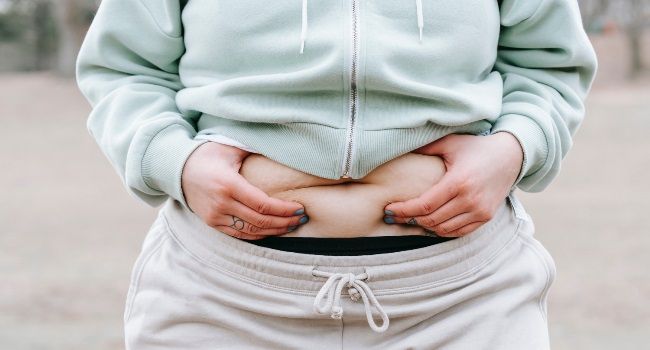The idea of gaining weight in the winter has floated around for decades, with conventional wisdom saying the average person puts on an additional five pounds during the colder months. While research shows that five pounds might be a bit of an exaggeration, doctors say winter weight gain is a real phenomenon.
“I see this with a lot of patients,” Dr. Kunal Shah, an assistant professor in the division of endocrinology at the Rutgers Robert Wood Johnson Medical Center, tells Yahoo Life. Dr. Dina Peralta-Reich, director of New York Weight Wellness Medicine, agrees. “It’s very common,” she tells Yahoo Life. “We see a lot of people normally gain weight during the holidays, and then, once January comes, they have New Year’s resolutions to work on losing it.”
But what’s behind winter weight gain, and are there healthy ways to avoid it? Doctors break it down.
What do studies say about winter weight gain?
While every person is different, the often-cited five pounds of additional weight in the winter isn’t supported by research. In one study of 195 adults published in the New England Journal of Medicine, people were weighed four times during the year. Researchers found that many gained weight as the weather turned cooler — an average of 0.4 pounds — and tacked on an additional 0.8 pounds during the holiday season, for a total average weight gain of 1.2 pounds. However, many started to lose weight after the holidays.
Another small study tracked the weight of female college students from May to January and found that the women gained about 1 pound from fall to winter. In general, most adults put on 1 to 2 pounds each year, according to the Harvard T.H. Chan School of Public Health.
Why do people gain weight in the winter?
There are a lot of different factors at play. “The majority of weight gain over the winter is dietary,” Dr. Mir Ali, a bariatric surgeon and medical director of MemorialCare Surgical Weight Loss Center at Orange Coast Medical Center in Fountain Valley, Calif., tells Yahoo Life. The holiday season doesn’t help. “People are eating more at holiday gatherings and being less mindful of what they eat,” Shah says. He adds that many people tend to drink more alcohol than usual during the holidays, too, which can lead to weight gain.
Travel is more common over the holiday season, and people may get out of their exercise routine as a result, Ali adds. The lower temperatures don’t help either, Peralta-Reich points out. “People become more sedentary and aren’t doing as much of their outdoor activities because it’s cold out.”
There’s a theory that your body will want to hold on to extra fat during the colder months for evolutionary reasons — the idea is that once upon a time, food was less available during the winter months — but it’s just a theory at this point. “It’s possible that this is true, but we don’t have any studies to back that up,” Shah says.
How to avoid winter weight gain
While the exact reason for winter weight gain varies from person to person, doctors say there are things you can do to help combat it.
“We recommend that our patients be careful with the amount of carbohydrates and sugars they have,” Ali says. “You don’t have to be as cautious with protein and vegetables.” He also suggests being mindful of how much alcohol you drink. “The more you eat and the more alcohol you consume, the more calories you’re taking in,” he points out.
Peralta-Reich suggests thinking in advance about what you plan to drink when you go to a party. “Be mindful, plan ahead and say, ‘I’m only going to have one drink,’” she says. She recommends choosing a drink you know you’ll enjoy and savoring it. “You don’t have to overly restrict yourself, but just be mindful of what and how much you’re having.”
Given that eating hearty snacks and meals is common during the winter, Shah often suggests that his patients focus on exercise during this time. “People can certainly try to exercise indoors, even with body-weight exercises in their own home — I recommend that to a lot of patients,” he says. He suggests purchasing a resistance band online and looking up workouts on YouTube that can be done in your home.
Finally, Shah recommends giving yourself some grace during this time. “I tell all of my patients that I’m not looking for them to lose weight over the holidays, but my goal is to have them maintain their weight during this time,” he says. “That seems to work well for most people.”


